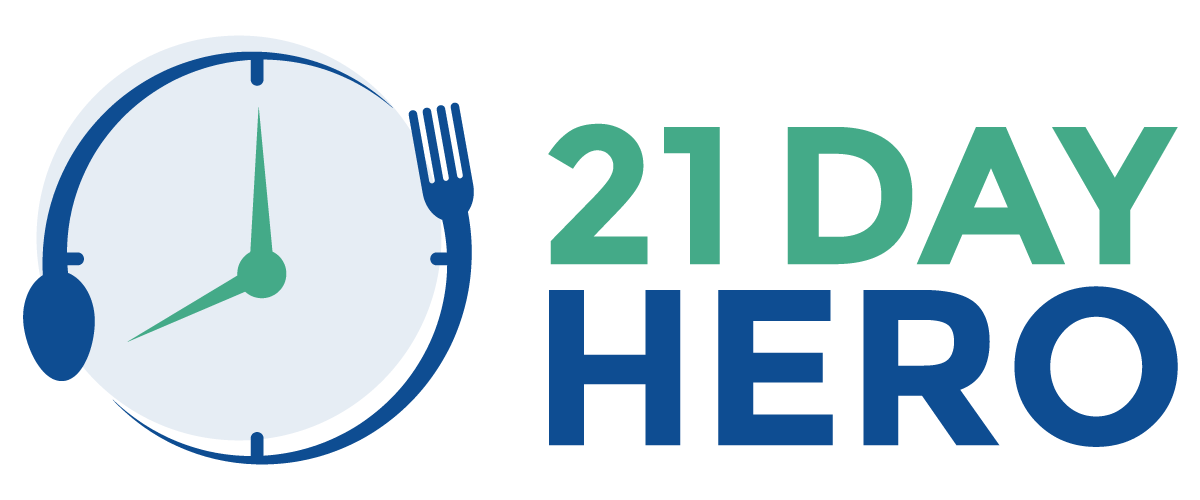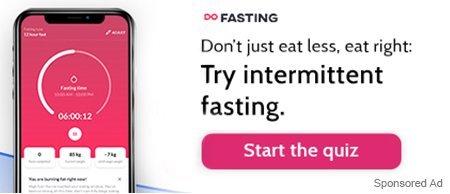What is candida | Symptoms Of Candida | Candida Causes | Candida & Intermittent Fasting | Keto & Candida | Thyme Oil & Candida | Foods That Cause Candida | Foods that treat Candida
Candida, a yeast infection, has become a significant health issue worldwide, particularly in the last 20 years. Candida overgrowth in the body can lead to symptoms like brain fog, fatigue, and digestive issues. While many treatments are available, one approach that has gained popularity is using intermittent fasting to cure candida. Fasting for Candida & Yeast infections can be of huge benefit, let’s dive in.
Among fungal infections, candida can be pretty stubborn. People with compromised immune systems are especially susceptible. Candidiasis is an even more severe form where candida enters the bloodstream. Recognizing the problem and opting for treatment is critical before it gets worse. This blog will tell you about candida and how to cure it with intermittent fasting and other methods. We also break down the 10 types of intermittent fasting once you have finished this reading.
What Is Candida?

Candida (formally called Candidiasis) is a fungal infection caused by a type of yeast (fungus) called Candida. Everyone has candida in their system- among the innumerable other bacteria we usually have on our skin and bodies. There is Candida in mouths, guts, and throats. However, when this harmless yeast grows uncontrollably, getting into the bloodstream and internal organs, it causes infections.
What Are The Symptoms Of Candida?
Candida can cause a variety of symptoms, including thrush and vaginitis. The symptoms of candida include the following:
- Fatigue
- Brain fog
- Memory problems
- Tingling, numbness, and other neurological issues
- Sleeplessness
- Muscle aches
- Constipation
- Bloating
- Abdominal pain
- Vaginal itching
- Anal itching
- PMS
- Mood disorders like anxiety
- Blood sugar disorders
- Nasal itching
- Loss of voice
- A white coating on the tongue
- Headaches, body aches
Candidiasis risks are high if a person has a compromised immune system, has been in the ICU, has had multiple stomach surgeries, has received antibiotics recently, or if the person has diabetes.
What Causes Candida?
In normal conditions, candida exists in harmony with the many other bacteria in your body. The bacteria and the immune system keep the Candida in check. However, a person might develop candidiasis if the beneficial bacteria are suppressed or the immune system is compromised. Here are a few common causes of candidiasis:
1. Antibiotics Overuse
Anti means against, and bio stands for life. This means when you take antibiotics, all kinds of bacteria, whether harmful or beneficial, get wiped out. If the good bacteria are removed, candida gets the perfect opportunity and climate to start growing. This can be prevented by consuming probiotics along with antibiotics.
2. A Diet of Processed Food and High Sugar Diet
When carbohydrate-heavy foods break down, they provide the perfect fuel for candida to grow and thrive. In addition, a diet high in processed foods and sugar will also deplete a person’s immune system, increase inflammation, and overload our system.
3. Autoimmune Problems
Candida and autoimmune disorders are interrelated. Candida can be one of the factors leading to a leaky gut, where the wall lining of the intestines gets damaged and permeable. Besides increasing inflammation, it tends to wear down the immune system and might pave the way for chronic autoimmune illness.

Fighting Candida With Intermittent Fasting
When you do intermittent fasting, a process called autophagy gets triggered inside the body. During autophagy, viruses, bacteria, yeast, fungi, and even Candida are cleaned out of your body at the cellular level. Autophagy happens when there is a dearth of nutrients in the body, which is the case with intermittent fasting.
Intermittent fasting for candida works in several ways. One of the main mechanisms is that it can help improve the balance of good bacteria in the gut. Fasting has been believed to increase the production of stomach acids, which in turn helps the gut microbiome promote the growth of beneficial bacteria while limiting the growth of harmful microorganisms like Candida.
Inflammation is one of the chief precursors of candida overgrowth; intermittent fasting yeast cure happens because IF can help reduce inflammation in your body. Fasting can also help to improve insulin sensitivity, which can be beneficial for those with candida as high levels of insulin can contribute to candida growth.
Lastly, when you are fasting, your body shifts from using glucose as the primary energy source to using ketones, which are produced from fat. It has been observed that in this condition, the body’s ability to fight yeast infections improves. This is because candida thrives on sugar, and when there is less sugar in the body, the candida growth rate is suppressed.
There are several types of intermittent fasting plans out there. You could start with something simple like the 5:2 diet, then move up to 16/8 or even further, like the monk fast. Its success depends on your discipline and dedication and how well you adhere to the rules of the fast.
Using a Keto Diet to Cure Candida
The ketogenic diet, also called the “keto diet,” is a low-carb, high-fat diet that has been shown to have various health benefits. One potential benefit of the keto diet is its ability to function as a candida cure.
The keto diet can be beneficial for a few reasons. First, the diet is low in carbohydrates, the main fuel for candida. Limiting carbs allows the yeast to use stored fat for energy instead. This limits the growth of candida and helps reduce their number.
Second, the keto diet is high in healthy fats, which help to support the growth of beneficial bacteria in the gut. This can help to rebalance the gut microbiome and reduce the amount of candida.
Third, the keto diet is also high in fiber, which helps to keep the gut healthy and promotes regular bowel movements, which can help to flush out candida.
In the keto diet, you will typically get 5% of your diet from carbs, 15% from proteins, and 80% from fats. This high-fat diet will force your body to produce ketones and start culling the candida population.
Here we wrote about the Keto & Intermittent fasting guide to learn more.
Thyme Oil to Treat Candida
You can also treat candida holistically with thyme oil, which has strong antifungal properties. It is also an antiseptic agent. Thyme oil will effectively destroy the candida yeast that caused the infection without negatively affecting the beneficial bacteria and fungus the body needs to function.
Any good health food store will have thyme oil. Currently, there are no guidelines for the quality control of thyme oil, so be sure to read the labels correctly and ask questions about the product’s quality. You may want to know if the plants were grown organically.
There are two methods to treat candida with thyme oil. First, you can apply thyme oil to the infected body area without diluting the oil. Otherwise, you can also consume it orally. Put a drop of thyme oil in 8 ounces of drinking water and drink up!
Foods That May Cause Candida – Fasting for Candida
Your diet is the biggest contributor to candida overgrowth. A whole-foods diet is essential for avoiding candida infection. You may want to eliminate the following foods from your diet as they can “feed” candida.
- Alcohol
- Caffeine
- Dairy products
- Fermented foods
- Starchy vegetables and beans
- Fruits with high glycemic content
All the above foods, when broken down, turn into simple sugars, which is where you would not ideally want to go. Candida thrives on sugar to function, and a plentiful supply of the same will possibly lead to candida overgrowth.

Foods To Have To Cure Candida
There are many things we can consume that will stave off candida growth and cure it naturally. Take a look at the following foods:
1. Coconut Oil
Coconut oil can be an effective treatment for Candida due to its high caprylic acid content. This acid breaks down the cell walls of yeast, relieving women struggling with fungal issues on the skin. Add a drop of tea tree oil to the coconut oil to enhance its antifungal properties. Remember that tea tree oil is quite potent and should be used cautiously on cuts and sores, but do NOT ingest tea tree oil, it is only for external use.
2. Oregano Oil
Oregano oil is an AMAZING anti-fungal for Candida and can be used while fasting. It has been shown to help fight off the fungus that causes Candida, you can gargle it, and ingest it as well in small quantities. To prevent the burn you may need a carrier oil such as coconut oil or olive oil.
3. Garlic
If you consume raw garlic, it will give you tremendous anti-bacterial, anti-microbial, and anti-fungal benefits. Garlic is even known to cure cancer cells. If you are not used to consuming raw garlic, you can take it as a supplement. Garlic can also act as a highly effective intravaginal suppository in the case of yeast infections. You can also use garlic oil in a supplement form, but for the oral thrush that comes with candida eating raw garlic is best.

3. Grapefruit Seed Extract
Grapefruit seed extract works against a variety of yeasts and molds including Candida, Geotrichum, Aspergillus and PeniciIlium, and perfect to use while intermittent fasting. This may be ingested as well, I personally take 10 drops in a small glass of water along with oregano oil to create a strong defense against Candida overgrowth and thrush.
4. Cruciferous Vegetables and Other Greens
Go for vegetables like Brussels sprouts, kale, cauliflower, and broccoli. They serve to repopulate our GI tract with beneficial bacteria. And all these good bacteria help fight candida overgrowth.
5. Ginger
Ginger is both an anti-fungal and anti-inflammatory food. You can get ginger into your system with ginger tea, a highly refreshing drink. Drink at bedtime to aid digestion, soothe the stomach, and decrease inflammation in the body.
6. Lemon Juice and Apple Cider Vinegar
Both of these drinks have antifungal properties. If you have a lemon squeezed in a glass of warm water in the morning, it will increase digestion and fight candida. Find out When to Drink Apple Cider Vinegar while intermittent Fasting?
7. Fresh Caught Fish
Freshly caught fish, like wild salmon, are rich in omega-3 fatty acids, a healthy fat source. It is also suitable for treating leaky gut.
8. Probiotics
It is recommended to have probiotics, as they boost your body and ensure that the variety of bacteria colonies in your body is diverse and optimal. This also may assist in creating less candida in your gut with the good bacteria fighting the candida.
Conclusion – Fasting for Candida & Yeast
I personally have had battles with candida, it can be long-term and tough to kick. The best results I have found is from eating whole foods, healthy meats, vegetables, and REDUCE any starchy or processed foods. I try to avoid bread, crackers, anything sugary especially. If you stay strict, you will conquer this, and intermittent fasting will help a LOT so that your body can fight the candida.
Candida overgrowth is a common issue nowadays and can have various symptoms. A combination of intermittent fasting, a keto diet, and thyme oil can effectively treat and prevent candida overgrowth. A diet low in sugar and carbs, high in healthy fats, and rich in probiotics also reduces candida.
It is also important to note that you should not discontinue any medical treatment in favor of these methods. It is always better to consult a healthcare professional before making any drastic diet changes.
Need an APP on your Mobile to help with Fasting? See our Top 6 FREE and Premium Fasting Apps
Want help Losing weight with our Programs? Check out our Fasting Challenge Page











